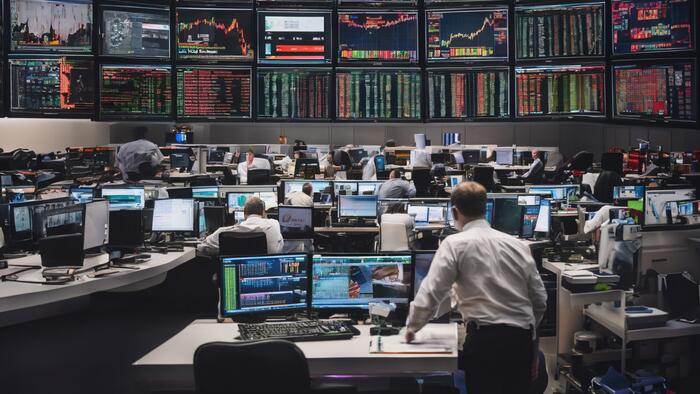US equity futures show a positive trend despite recent downturns in Europe and Asia, particularly influenced by tumultuous events in Hong Kong. As of 8:00 am ET, S&P futures have increased by 0.4%, recouping roughly half of Monday’s losses, the worst experienced since early September. Similarly, Nasdaq futures are up by 0.5%, primarily boosted by key technology stocks like Nvidia (NVDA), Microsoft (MSFT), and Google (GOOG). Markets responded negatively on Monday as bets on potential interest rate cuts were abandoned, contributing to a rise in 10-year bond yields beyond the 4.0% mark for the first time in two months. Despite fluctuations, US stocks remain relatively stable, showing no significant change since the Federal Reserve’s major rate cut in September.
Chinese markets, returning from a weeklong holiday, initially celebrated a promise of economic confidence from the government but quickly disappointed investors by withholding significant stimulus measures. After a promising start, rallying responses turned sour, particularly impacting Hong Kong stocks, which experienced their steepest drop since the Lehman crisis. While there were early gains reported, markets faced corrections as the China-exposed firms experienced notable drops, reflecting the changing investor sentiment that anticipated more aggressive fiscal support. The expectation of additional stimulus failed to materialize during a key announcement from China’s central planners, resulting in a dramatic shift in market performance.
In overnight trading, bond yields have cooled slightly, with a 3 basis point drop for two-year yields and a minor reduction in the 10-year yields. The Bloomberg dollar index has remained stable, while oil prices have decreased by 2.2%, attributed to the National Development and Reform Commission press conference’s lack of substance regarding stimulus plans. Notable earnings reports are also set to begin today, including PepsiCo (PEP) announcing a lowered revenue outlook due to various challenges, including cash-strapped consumers and recent recalls. In the corporate arena, several stocks moved significantly in premarket trading, reflecting a mixed earnings season.
The investment outlook is cautious as experts weigh opportunities for consumer inflation moderation that could affect Federal Reserve rate decisions. Key economists predict a downturn in consumer inflation from 2.5% to 2.3%. Market participants expect minimal rate cuts in the upcoming Fed meeting in November and are looking for broader corporate guidance. From the perspective of economic health, analysts believe the US labor market remains strong enough to support potential policy easing, making the upcoming Consumer Price Index (CPI) data increasingly critical for assessing future economic strategies.
In Europe, similar hesitance is seen, as equity indices like the Stoxx 600 have decreased by approximately 0.7% after China failed to provide a robust economic stimulus strategy, causing ripples across the continent. Stocks related to luxury goods and essential industries saw considerable declines, particularly among European firms like Kering SA and Burberry. Various corporate announcements have mixed impacts on the market, with Imperial Brands improving after announcing quarterly dividends and buyback plans, contrasting with less fortunate manufacturers like Vistry Group, which saw dramatic profit outlook reductions.
Asian markets are experiencing a downturn post-holiday as initial optimism quickly wanes; major indices like the MSCI Asia Pacific Index lagged. A divergence is apparent in Hong Kong stocks, where the Hang Seng Index achieved a brief post-holiday surge before falling significantly. The Chinese government’s assertion of stability did little to quell market nerves, prompting investors to reconsider China’s growth trajectory. The backdrop includes concerns about global geopolitical developments, marked by ongoing tensions in the Middle East and its potential economic ramifications as energy prices fluctuate—fueling both inflation concerns and investor caution. Overall, themes of divergence in market reactions highlight the complexity of the global investment landscape amid recovering consumer sentiments and geopolitical tensions.

